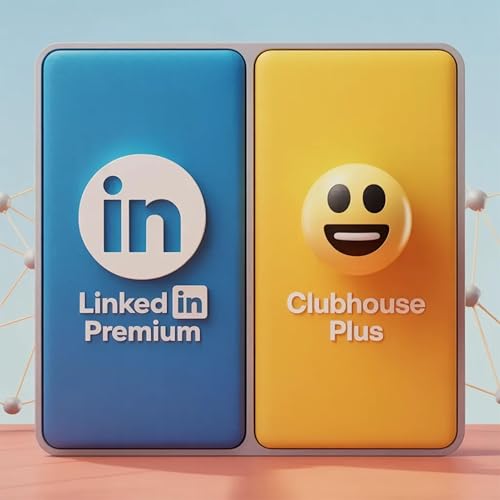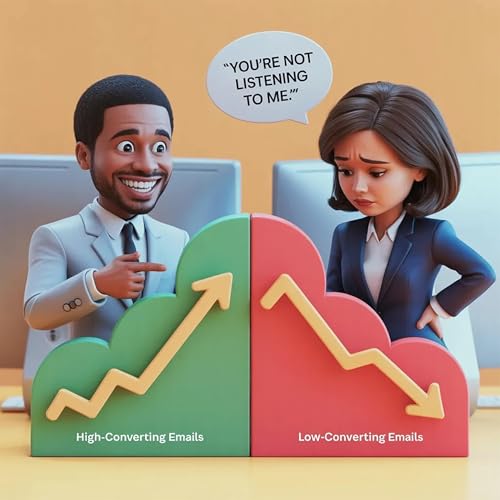In this insightful episode, Favour Obasi-ike, MBA, MS breaks down the critical differences and essential overlaps between traditional Google SEO and the emerging field of ChatGPT SEO (optimization for AI search). The core distinction is framed as Websites vs. Conversation. While Google prioritizes structured, keyword-optimized websites, AI models like ChatGPT, Perplexity, and Gemini focus on providing direct, conversational answers.Favour Obasi-ike argues that the future of content visibility lies in establishing your website as the central anchor for all content distribution. By consistently linking your website across all platforms (YouTube, LinkedIn, podcasts, etc.), you build the domain authority and citation structure necessary for AI models to trust and cite your content. He emphasizes that AI-driven search is shifting the user experience from "clicking" on a link to "trusting" a direct answer, making the source's authority more critical than ever. The podcast episode concludes with actionable advice on technical SEO, including optimizing for page speed, Core Web Vitals, and formatting content with listicles and tables to be easily digestible by AI.Need to Book An SEO Discovery Call for Advertising or Marketing Services?>> Book a Complimentary SEO Discovery Call with Favour Obasi-Ike>> Visit Work and PLAY Entertainment website to learn about our digital marketing services>> Join our exclusive SEO Marketing community>> Read SEO Articles>> Subscribe to the We Don't PLAY Podcast>> Purchase Flaev Beatz Beats OnlineKey Episode TakeawaysThe Fundamental Difference: Websites vs. ConversationThe core difference is in the format each search system prioritizes. Google SEO is built around ranking individual websites on search result pages (SERPs) for structured keywords. The user's journey involves clicking through to a website.ChatGPT SEO, on the other hand, is built for a conversational AI interface. The goal is to provide the perfect, direct, and trusted answer within the chat window itself, minimizing the need for a click.The New SEO Ecosystem: LLM VisibilityTo achieve LLM Visibility (Large Language Model Visibility), you must understand that search is now split between two major ecosystems.The Google/OpenAI ecosystem includes Google search, ChatGPT (using the Atlas Browser), and the associated platform, YouTube.The Microsoft/Perplexity ecosystem includes the Perplexity AI platform (using the Comet Browser) and the associated Microsoft-owned platform, LinkedIn.Actionable Steps for 2026 SEO StrategyEstablish Your Anchor: Your website must be the central hub for all your content.Distribute Your Authority: Place your website link on every third-party platform (social media, podcast directories, video descriptions).Optimize for Speed: Prioritize Core Web Vitals and page speed for both mobile and desktop to ensure a positive user experience, which Google rewards.Format for AI: Structure your content using tables, listicles, and concise, keyword-rich formatsto make it easy for AI models to extract and cite direct answers.Build Trust, Not Just Clicks: Focus on building long-term trust and authority with search engines through consistent, high-quality, and structured content.Episode Timestamps[00:00] Introduction: Google SEO vs. ChatGPT SEO, Optimization Showdown.[00:30] Defining the core difference: Google focuses on websites, ChatGPT focuses on conversation.[01:33] The connection: ChatGPT Atlas (browser) citing YouTube (owned by Google).[03:52] The goal: Use your website as an anchor for content distribution.[04:02] Understanding LLM Visibility (Large Language Model Visibility).[04:28] The emerging AI browser landscape: ChatGPT Atlas, Perplexity Comet, and the upcoming Google Disco.[05:30] The two major ecosystems: Google/YouTube/ChatGPT vs. Microsoft/LinkedIn/Perplexity.[06:15] The importance of checking your business's citations with "Google Learn About."[06:56] AI's focus on directness and specificity in answers (Siri, Alexa, etc.).[08:00] The shift from "click" to "trust"...
続きを読む
一部表示
 42 分
42 分
 2 時間 18 分
2 時間 18 分 2026/01/271 時間 2 分
2026/01/271 時間 2 分 2026/01/2755 分
2026/01/2755 分 42 分
42 分 2026/01/2558 分
2026/01/2558 分 1 時間 18 分
1 時間 18 分
